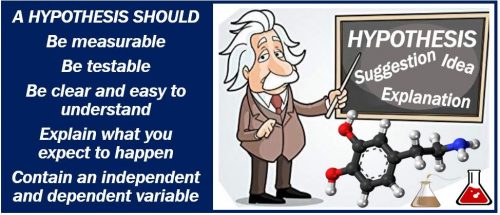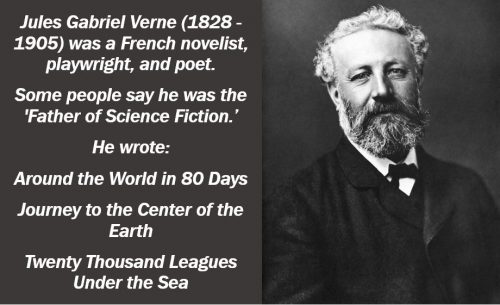A hypothesis (Plural: hypotheses) is an explanation, supposition, or idea about something. People’s hypotheses are based on the explanation of known facts. However, the idea or explanation has not yet been proved. Hypotheses are explanations that people propose for phenomena.
A scientist typically bases a scientific hypothesis on previous observations. However, it is not possible to explain it with the available scientific theories.
Hypothesis in statistics
In statistics, hypotheses are assumptions regarding specific characteristics of populations. If it represents values for each parameter of a population, we call it a simple hypothesis. Otherwise, it is a composite hypothesis.
A null hypothesis in statistics is one that attempts to nullify the difference between two samples. For example, it may suggest that the difference is not statistically significant.

Hypothesis vs. theory
In scientific reasoning, there are theories and hypotheses. The two are completely different.
In scientific reasoning, we construct hypotheses before we have done any applicable research. They are tentative explanations.
Theories, on the other hand, have compelling evidence that supports them. Before putting forward a theory, scientists carry out tests to prove that it is valid.
This is how Merriam-Webster explains the difference between the two terms:
“In scientific reasoning, a hypothesis is constructed before any applicable research has been done. A theory, on the other hand, is supported by evidence: it’s a principle formed as an attempt to explain things that have already been substantiated by data.”
Theories commonly integrate and generalize several hypotheses.
Remember that in common lay (non-scientific) usage, ‘theory’ means just a hunch. However, in science, it is a powerful explanation for a broad set of observations.
When a lay person says “That’s just a theory,” they are not using the word in a scientific reasoning context.

Etymology of ‘hypothesis
Etymology is the study of the origin of words and phrases and how their meanings have evolved.
According to etymonline.com, the term first appeared in the English language in the 1590s. At that time, it meant “a particular statement.”
In the 1650s, the term also meant “a proposition, assumed and taken for granted, used as a premise.” It came from the Middle French word ‘Hypothese,’ which came directly from the Late Latin word ‘Hypothesis.’ The Late Latin word came from the Greek word ‘Hypothesis,’ which meant “base, groundwork, foundation,” and then in extended use “supposition, basis of an argument.”
It wasn’t until the 1640s that the word began to have its current meaning in scientific reasoning.
A 2016 study of a theropod dinosaur by a University of Toronto palaeontologist supported the hypothesis that it had lips. This means that according to available evidence, the scientist suggests that this type of dinosaur had lips – the new study supports that suggestion.
